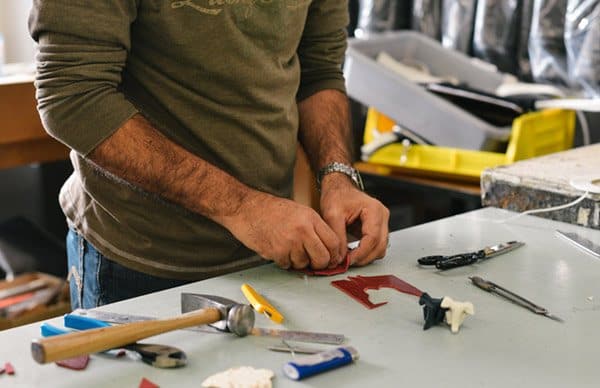Andy Thomas
16/09/2021
Spring has arrived, and with it a number of changes that may affect your workers.
Toolbox Topic – What’s going on with the weather?
Have you noticed that the weather is being very erratic, one moment it’s hot and humid and we can’t sleep at night, the next we are in the middle of a cyclone with snow on the mountains. Unfortunately, we live on a bunch of islands in the middle of the Pacific Ocean and we aren’t close enough to our nearest continent (Australia) for it to stabilise our weather. The result is fickle weather patterns at the best of times, add in the earth being at its closest point to the sun, the moon being at its closest point to the earth and a La Nina weather pattern, and we have a recipe for very unstable weather.
The result of all this can be fatigue, as your body adjusts to the changing conditions and irritability from disturbed sleep.
Spring forecast
The three-month forecast for New Zealand, is for the La Nina weather pattern to break down over the next few months, we will still have warmer than normal temperatures with normal rainfall predicted
Spring is always a time of changeable weather and brings a mixed bag of conditions that we have to cope with.
Always check the weather forecast before leaving home but prepare for it to change, our weather is unpredictable and weather forecasters don’t always get it right.

It can be hot one moment cold the next, maybe sunny when we leave home in the morning, but torrential rain by the afternoon. Plan for changeable weather, wear layers so that you can put on extra cloths or take some off, depending on the temperature, take wet rain wear or have it in your vehicle.

At this time of year, we are prone to cyclones and stormy weather. Be prepared for the worst weather just in case. If there is a cyclone coming make sure you are prepared for it, “batten down the hatches”, have an emergency kit and a plan to follow.

Once the rain has gone through and the sun comes out, we are hit with high humidity. Humidity overheats us because our sweat (which keeps us cool) can’t evaporate, it makes it very uncomfortable trying to sleep. As a result, we become fatigued and irritable. Try to have a fan or ventilation in your room to help you keep cool and have blanket layers on your bed so that you can throw off the covers if it is too hot and pull them over when it gets cold again. Sometimes a cool shower before you go to bed helps.
Try to be tolerant of others that may not have slept well, they are going to be irritable and short tempered.

There may be a warm and humid northerly wind (it may make the humidity feel lower), or a southerly bringing cold weather.
This is the time to tidy up outside to make sure there isnt anything that can be lifted in the wind and blown around. Make sure you have layers of clothes as a cold wind will drop your temerature very fast.
Take extra care when driving in these changeable conditions,
- Be aware of the changing conditions, weather, sunstrike, fog etc
- Slow down if its very windy
- Stop if you are fatigued
- Have warm and cool clothes with you as well as sumglasses for glare and sun strike
- Make allowances for other less experienced people on the road
COMMENTS FROM THE TEAM
- Do you have any other concerns about this tool box topic
- Do you see any problems at our site?
- What about other jobs you’ve worked on?
- Have you had any experience with personal protective equipment that might help us work safer here?
- Is there anything we need to share with other teams?
Discuss all safety concerns, not just today’s topic. Keep notes before, during, and after the safety meeting.
Are you aware of any hazards from other teams? Point out any hazards other teams have identified that this team should know about. Tell the team what we intend to do about those hazards.
Do we have any old business? Discuss past issues/problems. Report progress of investigations and action taken.
Any new business? Any accidents/near misses/complaints? Discuss accidents, near misses, and complaints that have happened since the last safety meeting. Also recognise the safety contributions made by members of the team.
Please remember, we want to hear from you about any health and safety issues that come up. If we don’t know about problems, we can’t take action to fix them.
To complete the training session:
- Circulate Sign-Off Form.
- Assign one or more team member(s) to help with next safety meeting.
- Refer action items for follow-up.
Notes:
Ready to get discuss your Health & Safety requirements?
Contact us today for a free 1 hour consultation, or feel free to contact either Steve Schroder 021 452 930 or Susan 021 570 570.



